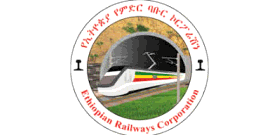 Ethiopia Sets Sights on Becoming East Africa’s Leading Rail Hub with New Italian Partnership
Ethiopia Sets Sights on Becoming East Africa’s Leading Rail Hub with New Italian Partnership
In a significant stride toward transforming its transportation landscape, Ethiopian Railways Corporation (ERC) has entered into a groundbreaking framework agreement with COIPA Italia. This collaboration aims to modernise Ethiopia’s railways and breathe new life into the long-stalled Awash–Kombolcha railway project, positioning the country as a pivotal transport player for the entire East and Central African region.
Signed in Addis Ababa on September 10, the agreement comes at a time when Ethiopia is actively seeking to fortify its role as a transit and logistics powerhouse. The initiative brings together European standards of safety, quality, and efficiency, alongside a robust commitment to knowledge transfer and local workforce training. By bringing these elements together, the partnership is set to boost not only the physical infrastructure but also the technical prowess of Ethiopia’s railway sector.
Among the headline features of the agreement is the focus on revitalising the Awash–Kombolcha stretch of the country’s railway network. This 270-kilometre section forms a critical part of the longer Awash–Hara Gebeya railway, which was originally launched in 2012 under a \$1.7 billion contract with Turkish builder Yapı Merkezi. Designed to be an electrified, standard-gauge railway spanning 392 kilometres from Awash northward, the project was envisioned as a transformative corridor linking the Djibouti–Addis Ababa mainline with northern Ethiopia. However, progress hit a standstill in recent years due to regional instability and significant infrastructure damage during the Tigray conflict.
The new agreement marks a renewed commitment to not just restore, but also modernise and future-proof this vital corridor. COIPA Italia brings to the table a wealth of experience in European standards and digital innovation, pledging to facilitate the adoption of predictive diagnostics, the repowering of locomotives, and the integration of advanced digital systems. These enhancements will ensure that Ethiopia’s railway network is not only restored to operational status but elevated to a level where it can compete with leading international systems in terms of efficiency and safety.
Beyond hardware and technology, the partnership emphasises skills development and institutional strengthening. ERC’s CEO, Hilina Belachew, underscored the transformative nature of this collaboration, describing it as a "fundamental step toward strengthening Ethiopia’s railway infrastructure and integrating the best European engineering expertise." The initiative is expected to deliver a comprehensive suite of training opportunities, allowing Ethiopian engineers and technicians to gain hands-on experience with cutting-edge rail technologies and operational best practices. This focus on local capacity-building is particularly crucial for ensuring that the benefits of the project are sustained long after the initial phase of international involvement.
COIPA Italia’s involvement goes beyond the Awash–Kombolcha project. The Italian company is already engaged in several initiatives aimed at developing rail logistics hubs and broader rail infrastructure throughout Ethiopia. CEO Vito Favorito Sciamarella highlighted the dual role of the partnership: not only will it introduce advanced technology and create new investment opportunities, but it will also strengthen ERC’s institutional capacity. "We are proud to make our experience available to support the sustainable growth of Ethiopia’s transport system, creating value for local communities and new development opportunities," Sciamarella remarked.
From a diplomatic perspective, the agreement has been lauded as a testament to the enduring ties between Ethiopia and Italy. Italian Ambassador Agostino Palese described the accord as "not only a business partnership, but a symbol of Ethiopia-Italy friendship." He stressed that modern, efficient, and sustainable rail transport is a critical driver of both economic transformation and regional integration—two core ambitions for Ethiopia as it seeks to broaden its trade connections and foster pan-African mobility.
For the wider African travel industry, this development signals a wave of change that extends far beyond Ethiopia’s borders. By adopting European standards and advanced digital solutions, Ethiopia is setting a benchmark for regional connectivity that could inspire similar efforts throughout sub-Saharan Africa. Improved rail infrastructure means enhanced access to key destinations, streamlined movement of goods and people, and the creation of new business corridors that can drive economic growth across multiple sectors, including tourism, trade, and logistics.
The renewed focus on the Awash–Hara Gebeya corridor is particularly noteworthy for stakeholders in the African travel ecosystem. Once operational, this line will serve as a vital artery linking inland regions with international gateways, including the all-important Djibouti port. This will not only facilitate easier movement within Ethiopia but also enhance the country’s attractiveness as a regional destination and a logistical hub, potentially opening the door to new routes, tourism products, and cross-border partnerships.
Furthermore, the partnership’s emphasis on sustainability aligns with broader industry trends, as African countries increasingly prioritise green development and responsible infrastructure investments. By integrating energy-efficient locomotives, predictive maintenance systems, and digital controls, Ethiopia’s rail sector could emerge as a model for how infrastructure renewal can go hand-in-hand with environmental stewardship. This offers compelling talking points for those in Africa’s travel sector looking to attract eco-conscious partners and clients.
Importantly, these advancements come at a time when global travel and trade are rebounding, and when African markets are seeking to harness new opportunities for post-pandemic growth. As Ethiopia positions itself as a transport hub for East and Central Africa, the ripple effects are likely to be felt across the continent—creating new avenues for business, expanding the range of accessible destinations, and encouraging a new wave of regional tourism and investment.
The Ethiopian-Italian partnership serves as a reminder that international collaboration, when coupled with a commitment to local development, can unlock transformative change. For Africa’s travel sector, the revival and modernisation of Ethiopia’s railway network represents not just a logistical upgrade, but a step toward a more integrated, connected, and competitive continent—one poised to seize the opportunities of tomorrow’s travel landscape.
